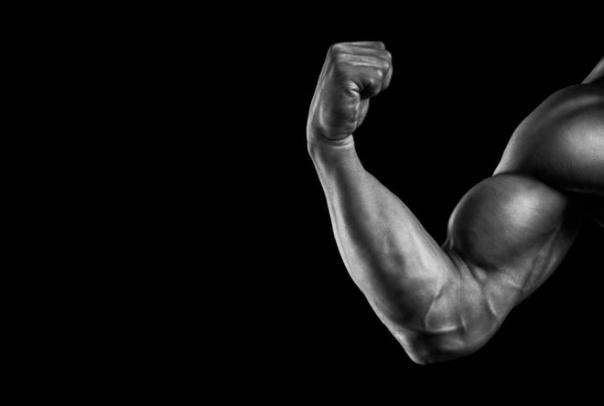Blog Archives
NATURAL TESTOSTERONE BOOSTERS
In today’s world it is a lot argued what is the role of testosterone, how to increase T level in the body, what is the healthy ways to do this. The survey found that people due to lifestyle and diet have a reduced secretion of this hormone, which has a very important function on our body. In the following, we will give some helpful information and answer some questions.

Today, the research found that the Japanese age of 100 years had higher levels of testosterone than Americans age of 30 years. With reduced level this hormone leads to chronic fatigue, reduce male libido, lose muscle mass, increase percentage of body fat, decreased bone mass, hair loss, low volume of semen, mood swings. The level of testosterone decreases with age, and over 40% of men, over 45 age, are the group at risk for this problem.

Natural ways to increase T hormone is:
Ejecting dietary sugar. The average American takes 12 teaspoons of sugar a day, and sugar directly reduces the level of T hormone secretion. When you eat foods rich in processed grains and sugar, your blood glucose level becomes elevated. To keep blood sugar levels, the pancreas begins to work overtime to produce insulin, which helps the flow of sugar from the bloodstream into the cells, in order to metabolized for energy. Finally, if your cells are exposed to insulin for a long time, you develop insulin resistance, which causes the occurrence of type II diabetes. Diabetes develops when your body is unable to produce enough testosterone.
Good quality sleep. According to scientific research long enough and timely sleep are the two most important ways to raise the level of T hormone in the blood. Sufficient sleep is 7 hours is recommended, also to be already at 22h going to bed, because sleep quality is the best from 22h to 2h in the morning. Level of the hormone cortisol, which reduces the level of secretion of the hormone T, is placed in the normal frame.
Reduce the level of fat in the body. Weight loss has a predictable and linear relationship with increasing testosterone naturally. When you take into consideration the effect that insulin resistance and poor sleep habits have on testosterone, this makes sense because they are all closely linked to obesity. At the core of this problem is the discharge of processed sugar from the diet, which is associated with insomnia, overweight, diabetes and other negative impacts on the secretion of hormones.
Stress reduction. The problem is when you are chronically stressed, and your body remains stuck in the condition in which the pumping out cortisol (the hormone stress) constantly.
Interval training with a combination of weight training. If you want to naturally increase testosterone and growth hormone, then combine weights with HIIT training (high intensity interval training). Lifting weights 6-12 reps, including large muscle groups will help your body to build more muscle mass. More muscle causes your body to produce more growth hormone. Despite the lifting, interval training with a combination is best for the overall increase growth hormone. It also maintains the level of T hormone. Interval method involves exercise of 90% to 100% of your maximum for short periods, in order to combust stored sugar (glycogen). This helps your body to burn fat in the next 36 hours and replace vital energy stores in your body. In addition to increasing the level of T helps in: lowering heart rate, lower blood pressure, accelerate blood circulation, detoxification by stimulating the lymphatic system.
Increasing the level of T hormone with using protein and healthy fats. Recent studies reveal that high branched chain amino acids (BCAA) significantly increases the level of T hormone and falling hormone cortisol. Recharging can be done in the form of protein shakes or simply increased protein diet (chicken, fish, eggs).
Sunbathing and Vitamin D. Studies show that Vitamin D increases levels of testosterone naturally, in obese men and up to 30%. This is interesting because research shows that vitamin D3 also linked to the prevention and treatment of cancer. Two of the best ways to optimize your vitamin D levels in helping and strengthening the secretion of testosterone are 20 minutes each day sun exposure. This is best done in the morning or afternoon, with exposure to 40% of the parts of the whole body.
EFFECT OF PHYSICAL ACTIVITY ON CREATIVITY AND CONCENTRATION
Whether and how physical activity affects persons engaged in activities requiring high concentration and creativity, we will try to explain in the next blog.
In the first ten days of training what you feel most in yourself is a change in the mental state and not a change in their weight and stiffness that is negligible. What I have learned from many years of experience working with clients from different parts of the world is that their time is becoming more important than weight and muscles is that they need to have a higher concentration at work, that they are calmer, better and easier sleep, they are more relaxed, have less stress and it is easier to accumulate it.

This is normal because the physical activity positively affects the heart, blood circulation, the pressure in the blood vessels, as well as many other functions. This is important because these are all prerequisites for good concentration (relaxation of the body), which generates creativity at work and in private life.
Just 30 minutes a day is enough to devote attention to your body in the form of physical activity. During training the heart rate per minute going to increase, depending on the severity and intensity of exercise, and up to 180 or more beats per minute. This will lead to your heart slower and quieter working during the day and therefore your body will be more peaceful and organ function in balance which leads to better concentration and less inclination to emotional stress during the day.
When my professor of physiology asked question, which goes like this: We know that in the life of every predetermined number of beats and depended on how many years they will live, how they athletes who each day have two training sessions a day and beats them go up to 200 ppm lives longer than those athletes who all day have a constant heart with small fluctuations, the whole amphitheater had no answer, and the answer is that athletes who in the hour or two or more have very high values of heart rate during the day they have very little stressing (easier tolerate to stress) and to speed up their heartbeat just for the reason that they had high-intensity training with a high number of heart beats per minute, and those who do not have physical activity the slightest thing will accelerate heartbeat due to stress, which is for athletes negligible. An example of this is that the heart at rest normal man per minute is 60 to 80 beats and of professional cyclist goes below 45 beats.
The psychological effects of recreational exercise are numerous and positive, so that the research so far, mainly cite the following effects: improving emotional health, improve mood and motivation, favorable impact on the emotional and social adjustments, boosting feelings of self-worth, reduce aggression, reduce general fatigue, positive effect on attitudes related to recreation.
Physical activity, whether it’s about hitting the sack or running in the park, in essence, one of the best ways to “blow out” and cope with stress. This is a result of hormone release of endorphins during aerobic exercise (running, swimming, rowing). It is important to know that it is not necessary to bring you to death, but to the regular fifteen-minute training can greatly help you.
HOW STRESS AND SLEEP CONSPIRE TO MAKE YOU FAT
Not so many people know that bad or short and insufficient sleep affects obesity and deposition of excess weight. Stress and hormones that it secretes also affect our weight and body. How, we’ll find out in the following text.
STRESS
What is cortisol? It is a hormone secreted by the cortex of the adrenal gland in response to stress, and the effect it has on muscle and body is only destructive. To make matters worse, cortisol increases blood sugar and thus the body “saves” fat. Of course, where would you least like to see – around the waist, thighs and so on. If we look at the cyclical rhythm of cortisol, then its concentration is highest in regularly waking up at 10am at 3pm at the beginning of a night’s sleep. Therefore, in these times is very important to bring high-quality nutrients. When the person who is training, cortisol is also at a very high level after training and government catabolic environment. To reduce this effect to a minimum after training should consume carbohydrates with high glycemic index (glucose, maltodextrin) to separate the insulin. This is important for two reasons: insulin acts contrary to cortisol (reduces blood sugar) and glucose, which under its operation into the station opens the “door” to the cell membrane to the building blocks (amino acids from whey proteins that are consumed together with coal hydrates) could rebuild the station. However, the period in which we have the opportunity to stop muscle catabolism and ensure rapid influx of amino acids and renewal energy resources (carbohydrates) is very short and includes the longest hour of the completion of the training.
SLEEP
In fact, if you do not sleep enough leptin – a hormone that controls appetite and affects the production of fat, will be decreases. Low levels of leptin give signals to body that there is a lack of food and increases appetite. This means that the brain receives a message that we need more food, and thus be grown. Most people need between six and eight hours of sleep one night. Studies show that good sleep may limit how many calories humans consume, and that “bad and short daily sleep” can lead to weight gain. If you tend to stay up late into the night and little sleep, these results may be particularly important for you. It turned out that those who going in the bad vary late and bring meals after 22h, get kilograms around stomach more than in the rest parts of the day.








 Hometrica Consulting
Hometrica Consulting Studio d'arte e architettura
Studio d'arte e architettura Savez za Rekreaciju i Fitnes Srbije
Savez za Rekreaciju i Fitnes Srbije Prote.in Restoran
Prote.in Restoran